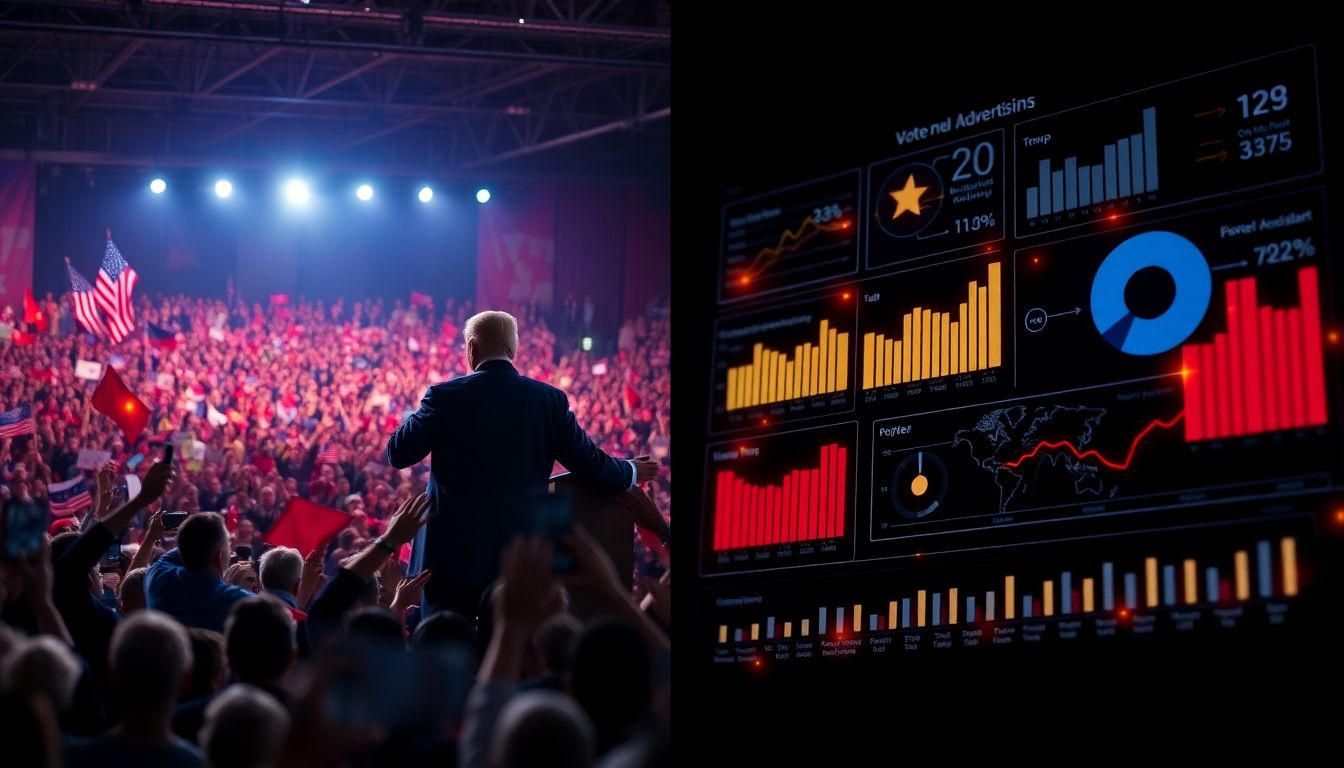In 2016, Donald Trump shocked the political world by winning the presidency. He built a massive following, with over 88 million Twitter followers at his peak, showing just how effectively he engaged the public. From his unconventional campaign slogans to his command of social media, Trump’s political marketing strategies were unlike anything seen before. This article examines the key strategies behind Trump’s success and how they reshaped political marketing.
Masterclass in Populism: Leveraging the Power of the People
Defining Populism in Trump’s Marketing
Trump framed himself as the outsider who fought for the everyday American. His slogans, like “Make America Great Again,” resonated with many who felt left behind. He spoke directly to issues concerning ordinary people, making them feel heard and valued.
The Role of Social Media
Trump utilized social media, especially Twitter, to communicate his message without mediation by traditional news outlets. His ability to reach millions directly allowed him to bypass filters and control what his supporters saw. Statistics show that Trump’s tweets received thousands of retweets and likes, creating significant engagement.
Building a Loyal Base
Through his rallies and events, Trump created a strong connection with his supporters. Emotional chants, such as “Lock her up!” and “Build the wall!” energized his base. The direct communication forged a sense of community, making his supporters feel like they were part of a larger movement.
The Art of Controversy: Embracing the Media Firestorm
Manufacturing Controversy
Trump thrived on controversy. Whether he was challenging political correctness or making bold statements, he attracted massive media coverage. For example, his comments about Mexican immigrants sparked widespread debate, ensuring he stayed in the headlines.
Controlling the Narrative
He mastered the art of controlling the media narrative. By using carefully crafted statements or leaks to friendly media sources, he influenced the conversation. This technique kept the focus on topics of his choosing, often deflecting criticism.
Turning Criticism into Advantage
Criticism often fueled his campaign. Instead of shying away from negative press, Trump embraced it, framing himself as a victim of the establishment. This strategy resonated with voters who felt disillusioned by the political elite, making them more loyal.
Branding and Image: The “Trump” Effect
Personal Branding
Trump’s name is a brand, and he used it consistently across all platforms. From merchandise like hats to slogans, the “Trump” brand signified strength, success, and power. This recognition helped him stand out in a crowded field.
Visual Identity
His campaign used powerful imagery to evoke feelings of confidence and patriotism. Red, white, and blue colors dominated his visuals, reinforcing his connection to American values. Flags, eagles, and images of the U.S. set a strong nationalistic tone.
Consistent Messaging
Trump maintained a consistent message across various channels. His persistent focus on hot-button topics like immigration and trade kept his supporters engaged and constant in their beliefs.
Data-Driven Decisions: Targeting the Right Voters
Micro-targeting Strategies
Data analytics played a crucial role in Trump’s strategy. His campaign used sophisticated targeting to reach specific voter demographics based on their interests and behaviors. Reports indicate that millions were spent on data-driven ads tailored to engage specific groups.
Data-Driven Content Creation
His campaign crafted messages that resonated with particular voter segments. Targeted ads highlighted issues from healthcare to job creation, ensuring relevance for different audiences.
Campaign Optimization
Real-time data allowed Trump’s team to adapt their messaging and spending. By analyzing voter responses instantly, they optimized their campaign strategies effectively, increasing ad performance.
The Power of Emotional Appeals: Connecting with Voters on a Deeper Level
Fear and Anger
Trump successfully invoked feelings of fear and anger, mobilizing his base. His rhetoric about crime and border security struck chords with those who felt threatened by change.
Hope and Change
Beyond fear, he capitalized on a desire for change. Promises of job creation and restoring traditional values gave hope to many voters looking for a better future.
Patriotism and Nationalism
Patriotism was at the heart of his message. By emphasizing American greatness and unity, Trump fostered a sense of identity among supporters, reinforcing loyalty and dedication to his cause.
Conclusion
Trump’s unique political marketing strategies reshaped the landscape of political campaigns. His approach combined populism, controversy, strong branding, data-driven decisions, and emotional appeals to effectively connect with voters.
Each of these strategies played a vital role in his success and offers valuable lessons for future political marketers. However, the ethical implications of some strategies raise important questions about honesty and integrity in politics. Understanding these dynamics is crucial for shaping the future of political communication.

AdHang is a political campaign agency with 15 years plus in the Industry.
Want to lead the polls? Hire AdHang for your campaign needs. We’ll help you connect and succeed. Don’t wait, reach out now!
